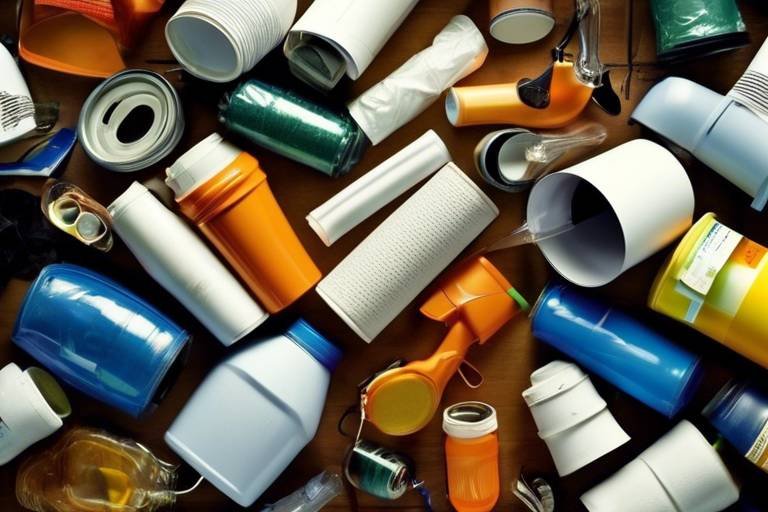Household Items You Didn't Know You Could Recycle
In our fast-paced world, where convenience often trumps sustainability, many of us find ourselves tossing items into the trash without a second thought. But did you know that there are countless household items just waiting for a second chance? Recycling isn't just about paper and plastic; it encompasses a wide array of everyday items that can help reduce waste and promote a healthier planet. By understanding what can be recycled, you can play a crucial role in environmental conservation. So, let's dive into the surprising world of recyclable household items and discover how you can make a difference!
When we think of recycling paper, our minds typically jump to newspapers and cardboard boxes. However, there are many uncommon paper products that can also be recycled. For instance, you might be surprised to learn that used paper towels and napkins can sometimes be recycled, depending on local guidelines. Even pizza boxes, often deemed too greasy for recycling, can be accepted in some areas if the soiled parts are removed. The key is to check your local recycling rules and ensure you're disposing of these materials correctly. By doing so, you're not only reducing waste but also contributing to a more sustainable recycling system.
As technology continues to advance, electronic waste, or e-waste, has become a significant concern. Many household electronics can be recycled, yet a staggering amount ends up in landfills. Items like old smartphones, laptops, and even broken chargers can be recycled, allowing valuable materials to be recovered and reused. This not only conserves resources but also reduces the harmful impact of e-waste on our environment. It's crucial to understand the types of devices that can be recycled and to seek out responsible disposal methods.
Large appliances, such as refrigerators and washing machines, are often overlooked when it comes to recycling. However, these bulky items can be recycled, and doing so has numerous benefits. Recycling old appliances helps to recover metals and other materials, significantly reducing landfill waste. Moreover, the process of recycling appliances consumes less energy compared to producing new items from raw materials. Understanding the recycling process for these appliances can empower you to make informed decisions about their disposal.
Many communities offer local and national recycling programs that accept old appliances. These programs often include convenient pick-up services or designated drop-off locations. Participating in these initiatives not only simplifies the recycling process but also ensures that your old appliances are handled responsibly. To find a recycling program near you, check with your local waste management authority or search online for available services. Remember, recycling old appliances is a step toward a greener future!
The environmental impact of recycling old appliances is profound. By recycling, we can significantly reduce energy consumption and minimize harmful waste in landfills. For instance, recycling one refrigerator can save enough energy to power a home for several months! This is a prime example of how individual actions can lead to substantial environmental benefits. So, the next time you consider tossing out an old appliance, think about its potential for recycling and the positive impact it can have on our planet.
Did you know that your old clothes and textiles can also be recycled or repurposed? Many people are unaware of the benefits of textile recycling, which can help reduce the environmental impact of clothing waste. Instead of throwing away those worn-out jeans or that sweater you never wear, consider donating them to local charities or recycling programs. Not only does this keep textiles out of landfills, but it also supports those in need. Explore local options for textile recycling, and be part of the solution!
Batteries are often overlooked in recycling efforts, yet they contain toxic materials that can harm the environment if disposed of improperly. Recycling batteries is crucial for safe waste management and environmental protection. Many people don't realize that there are specific recycling methods for different types of batteries, and knowing how to recycle them safely can make a significant difference. From AA batteries to car batteries, each type has its own recycling process.
Understanding the various types of batteries and their specific recycling methods is essential. For instance, alkaline batteries can often be recycled at designated centers, while lithium-ion batteries require special handling due to their chemical composition. Here's a quick overview:
| Type of Battery | Recycling Method |
|---|---|
| Alkaline | Check local recycling centers |
| Lithium-ion | Specialized recycling facilities |
| Lead-acid | Return to retailers or recycling centers |
Identifying local recycling centers that accept batteries can be challenging, but it's worth the effort. Many retailers, such as electronics stores and auto parts shops, offer battery recycling programs. Additionally, local waste management facilities often have designated drop-off points for batteries. By knowing where to find these facilities, you can ensure that your old batteries are disposed of safely and responsibly, contributing to a healthier planet.
1. What household items can I recycle?
You can recycle a variety of items, including paper products (like napkins and pizza boxes), electronics, old appliances, textiles, and batteries. Always check local guidelines.
2. How do I know if my local recycling program accepts certain items?
Check your local waste management website or contact them directly for specific recycling guidelines and accepted materials.
3. What happens to my recycled items?
Recycled items are processed and transformed into new materials or products, reducing the need for raw materials and minimizing waste.
4. Can I recycle batteries at home?
No, batteries should not be recycled at home. Instead, take them to designated recycling centers or participating retailers.
5. Why is recycling old appliances important?
Recycling appliances helps recover valuable materials, reduces energy consumption, and minimizes landfill waste, contributing to environmental conservation.

Uncommon Paper Products
When it comes to recycling, most people think of traditional items like newspapers and cardboard boxes. However, there are many that can also be recycled, yet often slip under the radar. For instance, did you know that used paper towels and napkins can sometimes find new life in the recycling stream? While they might seem too soiled to recycle, some facilities are equipped to handle these items, especially if they are made from unbleached materials. This means that your lunch napkin, which once held a delicious sandwich, could contribute to a more sustainable future.
Another surprising item is the pizza box. Yes, you heard that right! While many people assume that greasy pizza boxes are destined for the trash, they can actually be recycled in certain areas. The key here is to make sure that the box is not overly contaminated with food residue. If you can tear off the clean parts of the box, those can be recycled, while the greasy sections can typically be composted. It's all about being smart with your waste and understanding the recycling rules in your local area.
So, how do you know what can and cannot be recycled? It often depends on your local recycling program. Many municipalities have specific guidelines regarding paper products. To help you navigate this, here’s a quick reference table:
| Paper Product | Recyclable? | Notes |
|---|---|---|
| Paper Towels | Sometimes | Check local guidelines; unbleached is preferred. |
| Napkins | Sometimes | Clean napkins can be recycled; dirty ones are compostable. |
| Pizza Boxes | Sometimes | Remove greasy parts; clean sections can be recycled. |
| Shredded Paper | Check local rules | Often not accepted due to contamination issues. |
By being mindful of these uncommon paper products, you can significantly enhance your recycling efforts. It's about making informed choices every day. Just think of it as a small step towards a larger goal of reducing waste. The next time you clean up after a meal, take a moment to consider how you can recycle those items instead of tossing them straight into the trash. Every little bit helps, and it all adds up!

Electronic Waste
In our fast-paced digital age, (or e-waste) has become a significant concern for both consumers and the environment. With technology evolving rapidly, we often find ourselves upgrading our gadgets and appliances more frequently than ever. But what happens to those old devices? Many people simply toss them in the trash, unaware that they can be recycled, which is a missed opportunity for sustainability. Recycling e-waste not only conserves natural resources but also reduces pollution and the amount of hazardous waste in landfills.
So, what types of electronics can be recycled? The list is longer than you might think! You can recycle:
- Old cell phones
- Computers and laptops
- Televisions
- Printers and scanners
- Gaming consoles
- Small kitchen appliances
Each of these items contains valuable materials like metals, plastics, and glass that can be reclaimed and reused. For instance, did you know that a single computer can contain up to 1,000 times more gold than a ton of gold ore? That’s a treasure trove just waiting to be recycled! However, it’s crucial to dispose of these items responsibly. Many electronics contain toxic substances such as lead, mercury, and cadmium, which can leach into the environment if not handled properly. This is why understanding the recycling process for e-waste is essential.
When it comes to large appliances like refrigerators, washing machines, and air conditioners, recycling is not only possible but highly beneficial. These appliances often contain metals and other materials that can be repurposed. The recycling process typically involves dismantling the appliance, removing hazardous materials, and then processing the remaining components for reuse. By recycling these bulky items, we can significantly reduce landfill waste and conserve energy. Did you know that recycling just one refrigerator can save enough energy to power a home for a month?
Finding the right recycling programs for your old appliances can make all the difference. Many local governments offer special collection days or drop-off centers for e-waste. Additionally, some retailers provide take-back programs where you can return your old appliances when purchasing new ones. This not only simplifies the recycling process but also encourages responsible consumption. It’s a win-win situation!
The environmental benefits of recycling old electronics and appliances are profound. By recycling, we can:
- Reduce energy consumption
- Minimize the extraction of raw materials
- Decrease greenhouse gas emissions
- Lower the risk of soil and water contamination
In essence, every electronic device you recycle contributes to a healthier planet. It’s like planting a seed for future generations; each small action can lead to a larger impact. So next time you’re about to throw away an old gadget, ask yourself: can this be recycled? The answer is often yes, and your commitment to recycling can help pave the way for a more sustainable future.
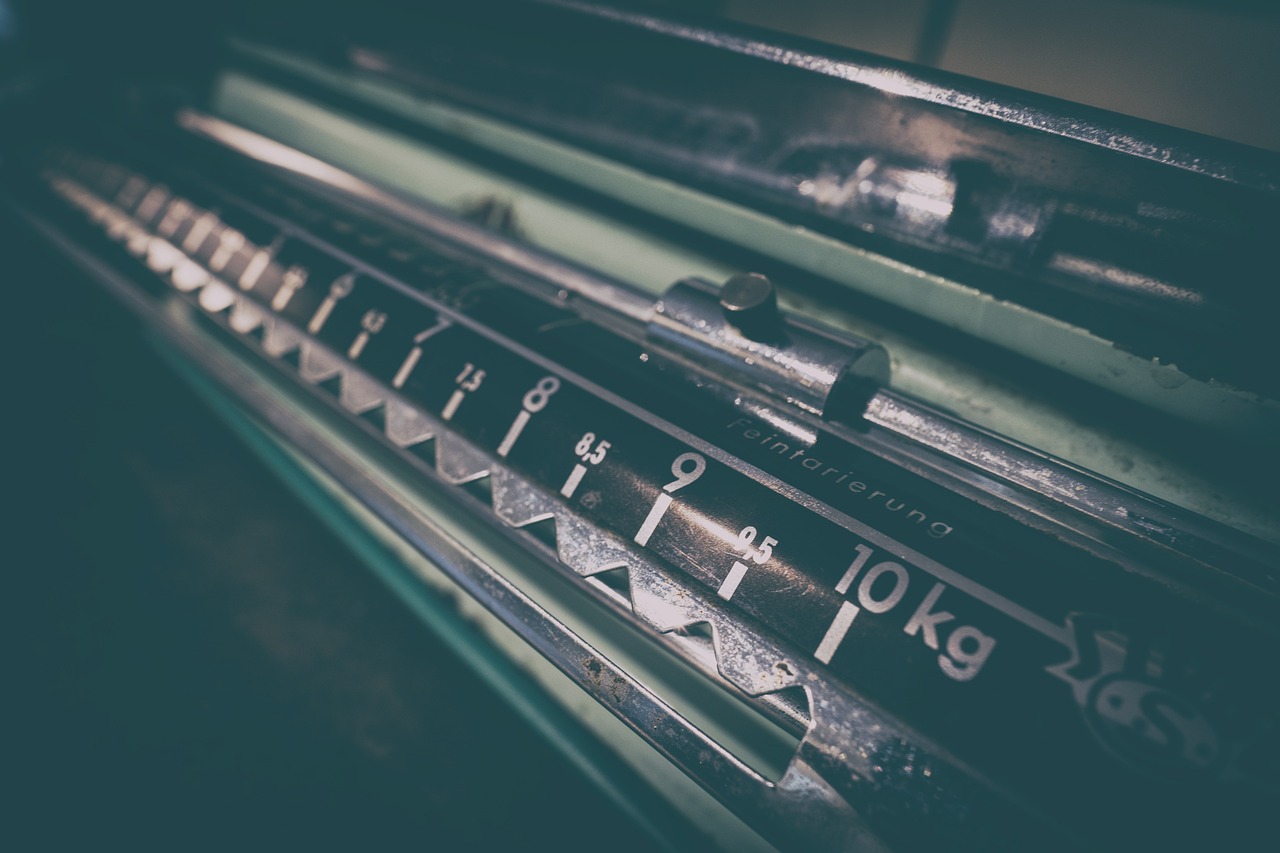
Old Appliances
When it comes to recycling, old appliances are often overlooked, yet they present a fantastic opportunity to contribute to sustainability. Many people might think, "What can I do with that old refrigerator or washing machine?" The truth is, these large items can be recycled in ways that benefit both the environment and local communities. Imagine turning what was once a bulky, energy-draining appliance into valuable materials that can be reused in new products. Not only does this reduce landfill waste, but it also conserves energy and resources that would otherwise be spent on manufacturing new items from scratch.
So, what exactly happens to these old appliances when you recycle them? The process typically involves several steps, including collection, disassembly, and the recycling of various components. Many appliances contain metals, plastics, and even glass that can be reclaimed and repurposed. For instance, the steel from a washing machine can be melted down and reformed into new steel products, while the plastic components can be recycled into new plastic items. This is where the magic of recycling truly shines—transforming what was once considered trash into something useful.
However, recycling old appliances isn't just about the materials; it's also about the environmental impact. By recycling, you are helping to reduce the amount of waste that ends up in landfills, where it can take years to decompose. Moreover, recycling appliances helps to minimize the toxic substances that can leach into the ground from landfills, such as refrigerants and heavy metals. This is crucial for protecting our soil and water sources, ensuring a healthier planet for future generations.
Many communities have established programs specifically designed for the recycling of old appliances. These programs often include pick-up services or designated drop-off locations, making it easier for residents to recycle responsibly. If you're unsure about how to participate in these programs, check with your local waste management authority or visit their website for detailed information. They can provide guidance on what appliances are accepted, any fees that may apply, and the proper procedures for disposal.
In summary, recycling old appliances is an essential part of promoting environmental sustainability. By taking the time to properly dispose of these items, you are not only reducing waste but also contributing to a circular economy where materials are reused and repurposed. So, the next time you find yourself with an old appliance, remember that recycling it can make a significant difference. Together, we can create a cleaner, greener world.
- What appliances can be recycled? Most large appliances like refrigerators, washing machines, dryers, and ovens can be recycled. Always check with your local recycling program for specifics.
- Are there any fees associated with recycling old appliances? Some programs may charge a fee for pick-up or drop-off, while others might offer free services. It varies by location.
- How can I find a recycling program for old appliances? You can contact your local waste management authority or search online for recycling centers in your area that accept large appliances.
- Can I recycle small appliances, like toasters or microwaves? Yes, many small appliances can also be recycled, but it's best to check local guidelines for specific instructions.

Recycling Programs
When it comes to recycling old appliances, knowing where to turn is half the battle. Fortunately, there are numerous designed to make the process as seamless as possible. These programs not only facilitate the responsible disposal of bulky items but also contribute significantly to environmental sustainability. Many communities have set up dedicated services for picking up large appliances, while others provide convenient drop-off locations. Whether you’re looking to recycle an old refrigerator or a washing machine, it’s essential to be informed about your options.
In the United States, various local and national programs are available to help you recycle your appliances. For instance, many utility companies offer incentives for recycling old refrigerators or freezers, which can reduce your energy bill while promoting eco-friendly practices. In addition, organizations like Earth911 provide searchable databases where you can find nearby recycling centers that accept different types of appliances. You can simply enter your zip code and discover the best options available to you.
Moreover, some retailers have taken the initiative to offer recycling services. When you purchase a new appliance, many stores will take your old one away for recycling at no additional cost. This not only simplifies the process for you but also ensures that your old appliances are disposed of correctly. It's a win-win situation!
Here’s a quick overview of some popular recycling programs:
| Program Name | Type of Service | Website |
|---|---|---|
| Earth911 | Recycling Locator | earth911.com |
| RecycleNation | Comprehensive Recycling Info | recyclenation.com |
| Local Utility Programs | Appliance Recycling Incentives | Check with local utility provider |
In addition to these programs, many cities host special recycling events throughout the year, where residents can drop off their old appliances and other electronic waste. Participating in these events not only helps you declutter your home but also contributes to a larger community effort aimed at reducing landfill waste. So, keep an eye on your local announcements, and be sure to take advantage of these opportunities!
Ultimately, the key takeaway is that recycling old appliances is not just a personal responsibility; it’s a collective movement towards a more sustainable future. By engaging with these recycling programs, you’re not only helping to minimize waste but also conserving valuable resources and energy. So, the next time you find yourself with an old appliance, remember that there are plenty of options available to recycle responsibly!
Q: What types of appliances can I recycle?
A: Most recycling programs accept large appliances like refrigerators, washing machines, dryers, and stoves. Always check with your local program for specific guidelines.
Q: Is there a fee for recycling my appliances?
A: Some programs may charge a small fee, while others offer free pickup services, especially when you purchase a new appliance. It's best to inquire beforehand.
Q: Can I recycle appliances that contain hazardous materials?
A: Yes, but they often require special handling. Programs that deal with hazardous waste will have specific guidelines on how to dispose of these items safely.
Q: How do I find a recycling program near me?
A: Websites like Earth911 and RecycleNation allow you to search for local recycling centers by entering your zip code. You can also check with your local waste management department.
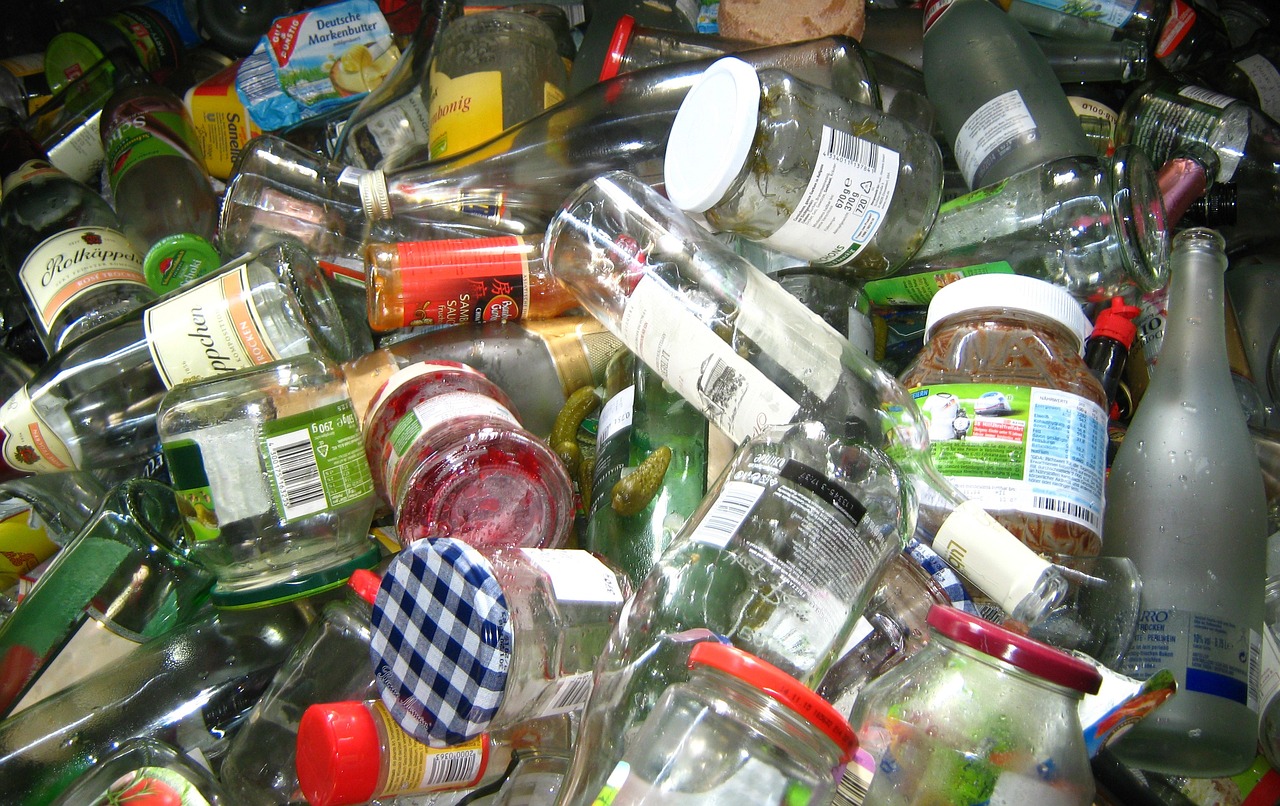
Environmental Impact
Recycling old appliances isn't just a responsible choice; it has a significant that benefits us all. When we recycle, we are effectively reducing the amount of waste that ends up in landfills. Did you know that landfills are a major source of methane, a greenhouse gas that is far more potent than carbon dioxide? By recycling appliances, we are not only diverting waste but also minimizing harmful emissions that contribute to climate change.
Furthermore, recycling appliances conserves natural resources. For instance, recycling metals like aluminum and steel means that less raw material is needed to manufacture new products. This process not only saves energy but also reduces the destruction of habitats that occurs during mining operations. In fact, recycling one ton of aluminum can save up to 8 tons of bauxite ore from being mined. Imagine the impact if every household made a conscious effort to recycle their old appliances!
The benefits of recycling extend beyond just conserving resources; it also plays a crucial role in reducing energy consumption. The energy required to recycle materials is often significantly less than that needed to produce new items from virgin materials. For example, recycling steel saves about 60% of the energy compared to producing new steel. This energy savings translates into lower greenhouse gas emissions, further contributing to a healthier planet.
Moreover, by recycling appliances, we help create a market for recycled materials, which can lead to economic growth and job creation in the recycling industry. As demand for recycled materials increases, so does the need for more recycling facilities, which in turn creates local jobs and stimulates the economy. It's a win-win situation!
In summary, the environmental impact of recycling old appliances is profound. Here are some key points to consider:
- Reduces landfill waste and harmful emissions.
- Conserves natural resources and protects habitats.
- Saves energy and reduces greenhouse gas emissions.
- Stimulates the economy by creating jobs in the recycling sector.
So, the next time you're thinking about tossing out an old refrigerator or washing machine, remember the positive ripple effect that recycling can have on the environment. Every small action counts, and by making informed choices, we can all contribute to a more sustainable future.
Q: What types of appliances can be recycled?
A: Most household appliances can be recycled, including refrigerators, washing machines, dryers, and microwaves. Always check with your local recycling program for specific guidelines.
Q: Are there any fees associated with recycling old appliances?
A: Some recycling centers may charge a fee for large appliances, especially if they contain refrigerants. It's best to inquire beforehand.
Q: How can I find a recycling program near me?
A: You can search online for local recycling programs or check with your municipal waste management office for information on drop-off locations and pick-up services.
Q: Can I recycle appliances that are still in working condition?
A: Yes! If your appliances are still functional, consider donating them to local charities or organizations that accept used appliances.
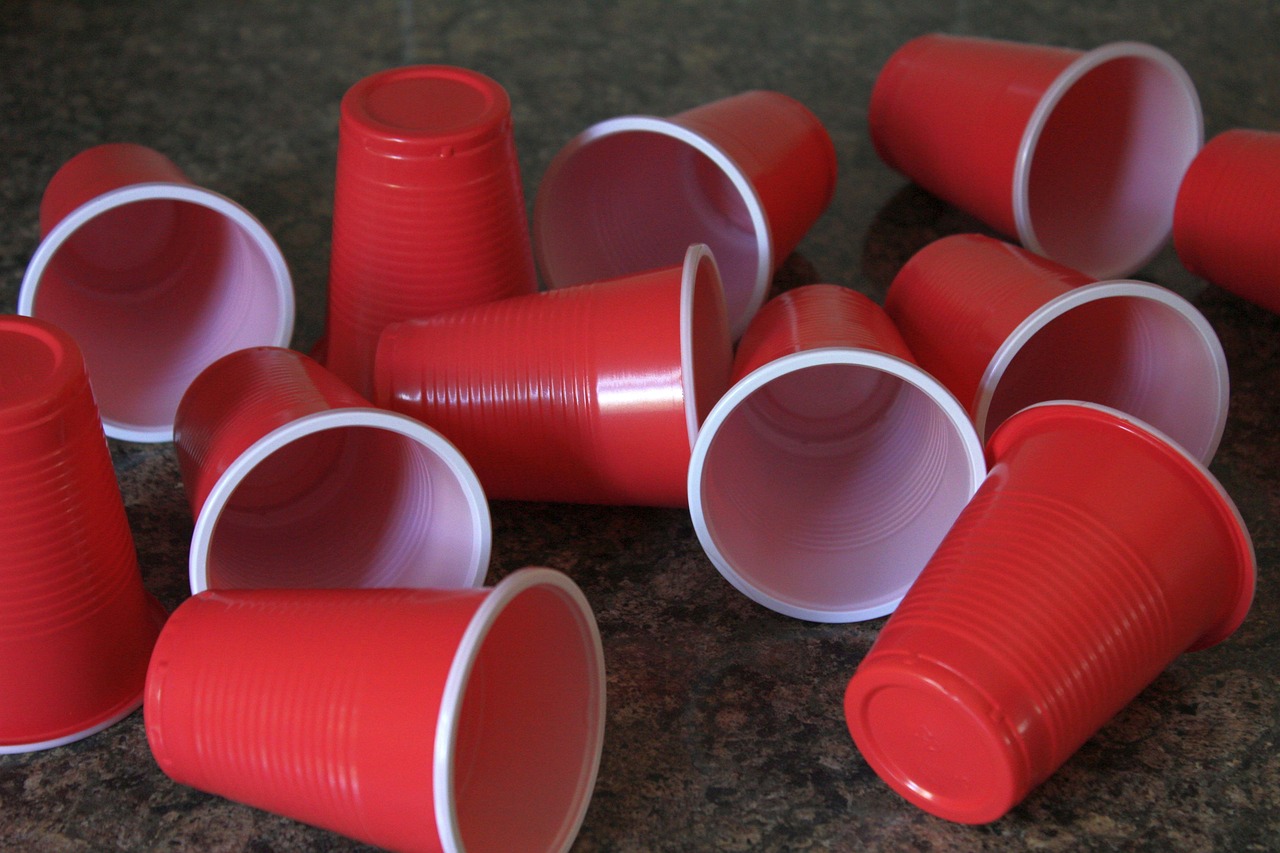
Textiles and Clothing
Did you know that your old clothes and textiles can have a second life? It's true! Many people are surprised to learn that not only can their worn-out jeans and frayed t-shirts be recycled, but they can also contribute to a more sustainable planet. Recycling textiles helps to reduce waste in landfills, which is crucial considering that textiles can take decades to decompose. Instead of tossing those old garments into the trash, consider the impact of recycling them. By doing so, you're not just decluttering your closet; you're also making a positive environmental choice.
Textile recycling is a fantastic way to give a new purpose to items that might otherwise be forgotten. Many organizations and companies specialize in collecting and recycling textiles. They can take everything from clothing and shoes to bed linens and towels. In fact, the recycling process can transform these items into new products, such as insulation for buildings, rags for industrial use, or even new clothing. It's like giving your old clothes a makeover, but instead of a new outfit, they become something entirely different!
So, how can you get involved in textile recycling? It's easier than you might think! Many local charities and thrift stores accept donations of gently used clothing. Make it a habit to go through your wardrobe regularly and set aside items that you no longer wear. In addition to donation centers, some retailers have take-back programs where you can return old clothes for recycling. This is not only a great way to declutter but also an opportunity to score some discounts on your next purchase!
Here’s a quick overview of the benefits of recycling textiles:
- Reduces landfill waste: Recycling textiles prevents them from ending up in landfills where they can take years to decompose.
- Conserves resources: By recycling, we save the energy and resources that would be used to produce new textiles from raw materials.
- Supports local charities: Donating clothes can help those in need while also supporting local organizations.
- Encourages a circular economy: Recycling textiles promotes sustainability by keeping materials in use and reducing the need for new resources.
Remember, recycling textiles is not just about throwing them in a bin; it’s about making conscientious choices that benefit our environment. So the next time you're tempted to toss out that old sweater or those jeans that no longer fit, think twice! You have the power to make a difference, one piece of clothing at a time.
Q: What types of textiles can be recycled?
A: Most textiles can be recycled, including clothing, shoes, linens, and even some types of upholstery. Just make sure they are clean and dry!
Q: Where can I recycle my old clothes?
A: You can donate them to local charities, thrift stores, or look for recycling programs at retail stores. Many communities also have textile recycling bins.
Q: What happens to my clothes after I recycle them?
A: Your clothes may be reused, repurposed into new products, or recycled into fibers for insulation and other materials. The possibilities are endless!
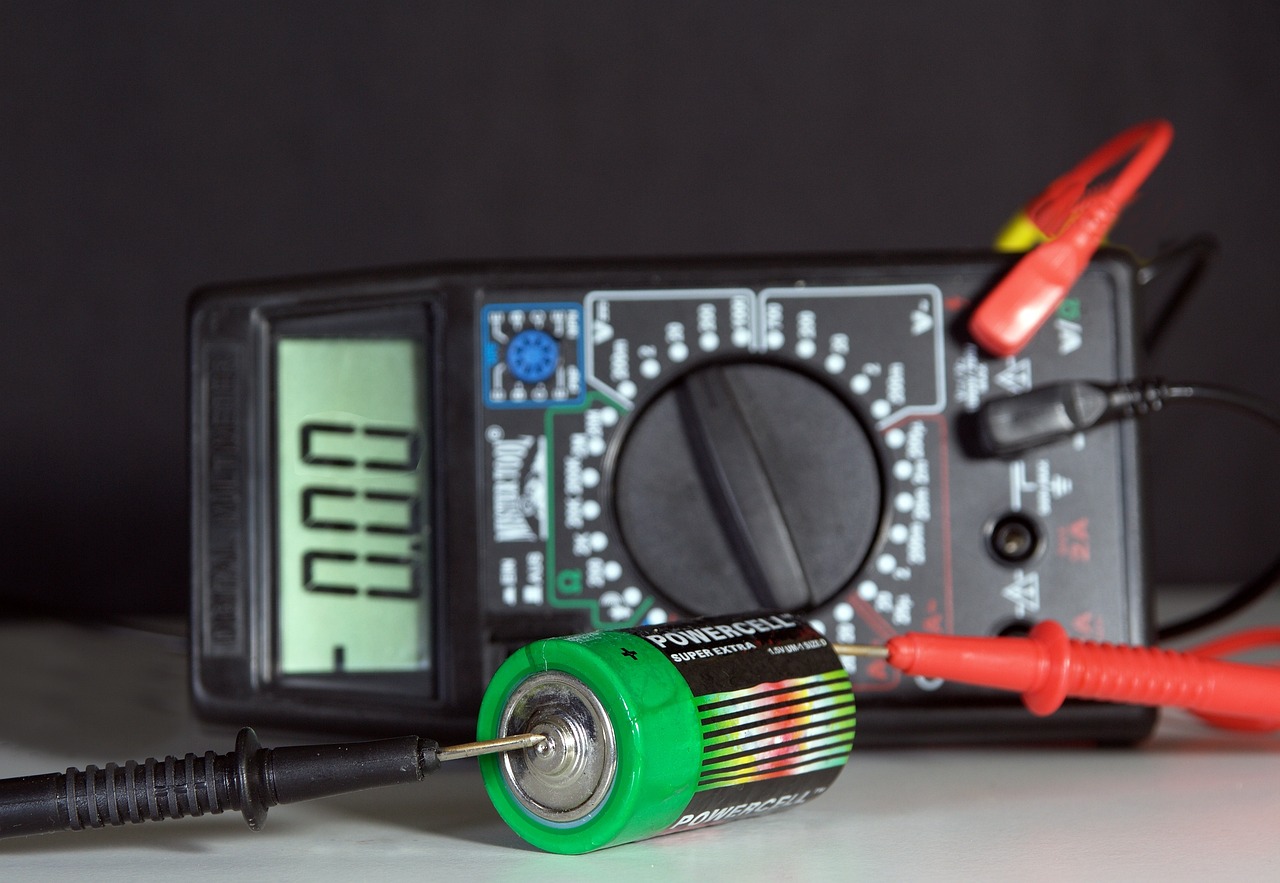
Household Batteries
Batteries are essential in our everyday lives, powering everything from remote controls to smartphones. However, they often get overlooked when it comes to recycling. Did you know that improper disposal of batteries can lead to serious environmental hazards? That's right! Many batteries contain toxic materials that can leach into the soil and water, posing a threat to both wildlife and humans. This makes it crucial to understand how to recycle batteries safely and effectively.
First off, let's dive into the different types of batteries that we commonly use in our households. Batteries can be broadly categorized into two types: rechargeable and non-rechargeable. Rechargeable batteries include lithium-ion batteries found in laptops and smartphones, while non-rechargeable batteries include alkaline batteries typically used in TV remotes and toys. Each type has its own recycling methods and regulations, which is why it's vital to know what you're dealing with.
When it comes to recycling, it's not just about tossing batteries into your regular recycling bin. Most municipalities have specific guidelines for battery disposal. For instance, you might find that some places accept certain battery types at curbside recycling, while others require you to take them to designated drop-off locations. To make things easier, here’s a quick overview of common battery types and their recycling methods:
| Battery Type | Recycling Method |
|---|---|
| Alkaline Batteries | Check local regulations; often can be disposed of in regular trash, but recycling is preferred. |
| Lithium-ion Batteries | Take to designated recycling centers or retail drop-off locations. |
| Nickel-Cadmium (NiCd) Batteries | Must be recycled at specific facilities due to toxic materials. |
| Lead Acid Batteries | Return to retailers or recycling centers that accept hazardous waste. |
Now, you might be wondering, where can you find these recycling locations? Identifying local recycling centers that accept batteries can sometimes feel like searching for a needle in a haystack. However, many communities have established dedicated programs to facilitate battery recycling. You can often find this information on your local government’s website or by contacting your waste management department. Some retailers, like electronics stores, also offer battery recycling programs. So, the next time you're out shopping, keep an eye out for those recycling bins!
In conclusion, recycling household batteries is not just a good habit; it's a necessary step towards protecting our environment. By properly disposing of batteries, we can prevent harmful chemicals from entering our ecosystem and promote a sustainable future. So, the next time you replace a battery, think twice before tossing it in the trash. Instead, seek out a recycling option and contribute to a cleaner, greener planet!
- What types of batteries can I recycle? Most household batteries, including alkaline, lithium-ion, and nickel-cadmium, can be recycled, but check local guidelines for specifics.
- Can I throw batteries in the regular trash? It's generally not recommended to dispose of batteries in the trash due to environmental risks; always look for a recycling option.
- Where can I find battery recycling locations? Check your local government's website or ask at electronics retailers for battery recycling programs.
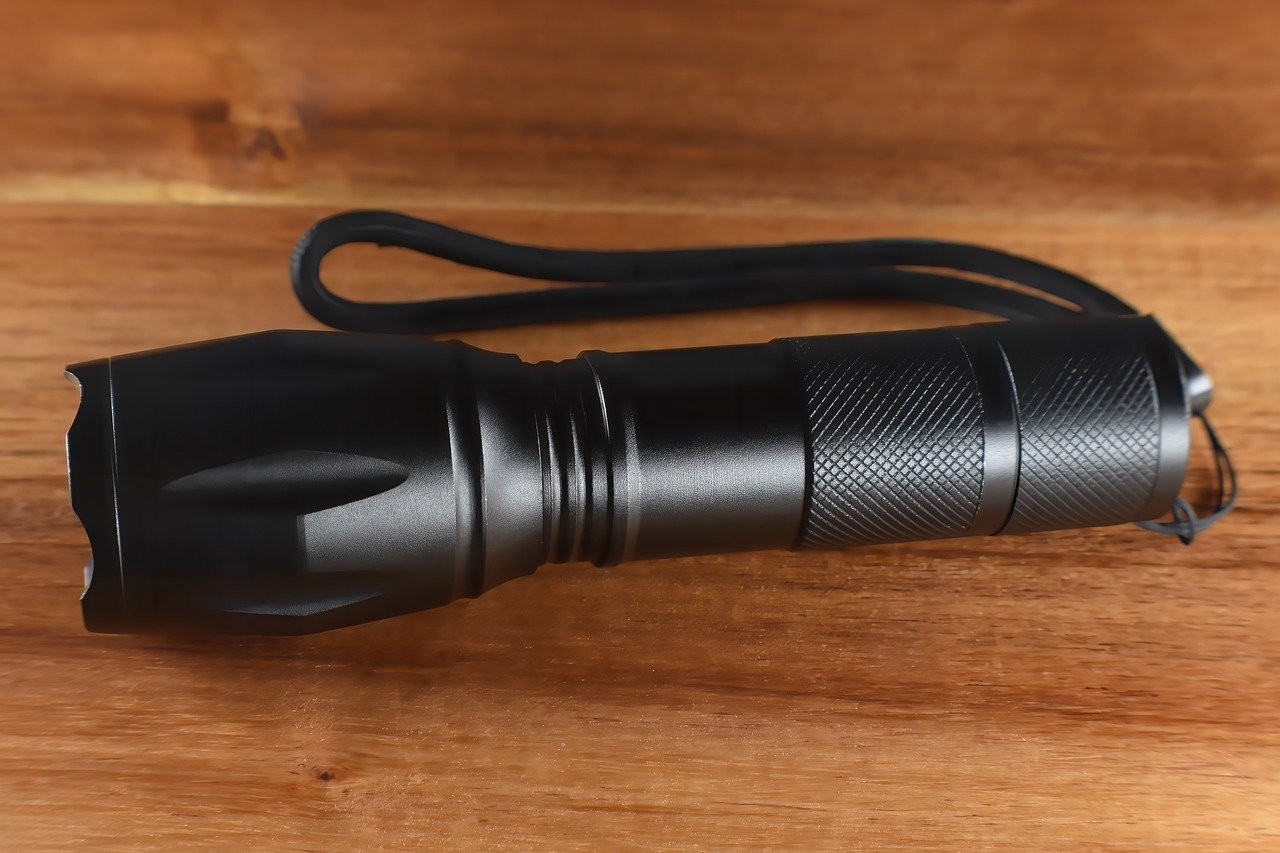
Types of Batteries
Batteries are an essential part of our daily lives, powering everything from our smartphones to our remote controls. However, not all batteries are created equal, and understanding the different types can significantly impact how we recycle them. It’s important to recognize that batteries contain various materials, some of which are hazardous to the environment. By knowing the types of batteries you have around the house, you can ensure they are disposed of properly and responsibly.
Here’s a quick breakdown of the most common types of batteries:
- Alkaline Batteries: These are the most common household batteries, often used in toys, remote controls, and flashlights. While they can sometimes be disposed of in regular trash, many recycling programs accept them to recover valuable metals.
- Rechargeable Batteries: Found in devices such as laptops, cell phones, and power tools, these batteries can be reused many times. They include nickel-cadmium (NiCd), nickel-metal hydride (NiMH), and lithium-ion batteries. Recycling these is crucial as they contain heavy metals and chemicals.
- Lead-Acid Batteries: Commonly used in vehicles, these batteries are highly recyclable. In fact, over 95% of a lead-acid battery can be recycled, making them one of the most efficiently recycled products.
- Lithium Batteries: Increasingly popular due to their use in electric vehicles and portable electronics, lithium batteries require special handling when recycling due to their chemical composition.
Understanding these types can help you take the right steps in recycling and reducing waste. For example, while alkaline batteries can sometimes be tossed in the trash, it's better to recycle them to conserve resources. Rechargeable batteries, on the other hand, should never be thrown away; they must be taken to a designated recycling facility to prevent environmental contamination.
In many communities, local recycling programs have specific guidelines for battery disposal. Some even offer drop-off locations or collection events. It’s worth checking with your local waste management authority to find out what options are available. You might be surprised at how many places are committed to helping you recycle your batteries correctly!
Moreover, recycling batteries not only helps keep harmful materials out of landfills but also contributes to the conservation of precious resources. For instance, recycling one million cell phones can recover over 24,000 pounds of copper, 750 pounds of silver, and 35 pounds of gold! Imagine the impact if everyone took the time to recycle their batteries properly.
- Can I recycle all types of batteries? Not all batteries can be recycled in the same way. Alkaline batteries may be disposed of in some areas, while rechargeable and lithium batteries should always be taken to a recycling center.
- Where can I find a battery recycling location? Check with local waste management authorities or use online resources to find nearby recycling centers that accept batteries.
- What happens to batteries when they are recycled? Batteries are processed to recover valuable materials, which can then be reused in new products, reducing the need for raw materials and minimizing environmental impact.

Recycling Locations
Finding the right places to recycle can sometimes feel like searching for a needle in a haystack. However, knowing where to go can make all the difference in ensuring that your efforts to be environmentally friendly don’t go to waste. Many communities have established recycling programs, but not everyone is aware of the specific locations or resources available. For instance, local recycling centers often accept a variety of materials, including batteries, electronics, and even textiles. It's essential to do a little research to locate these facilities in your area.
One effective way to identify recycling locations is to visit your city or county’s official website. Most municipalities have a dedicated section for waste management and recycling services, where you can find detailed information about what materials are accepted and where you can drop them off. Additionally, many local governments provide interactive maps that can help you pinpoint the nearest recycling centers.
If you're looking for a more personal touch, consider reaching out to community organizations or local environmental groups. They often have valuable insights and can guide you to the best recycling options available in your area. Many of these organizations also host recycling events, which can be a great opportunity for you to recycle items that might not be accepted at regular centers, such as old appliances or electronics.
Another option is to utilize mobile apps designed to help users find recycling locations. These apps can provide real-time information about nearby facilities, including their hours of operation and the specific items they accept. With just a few taps on your smartphone, you can ensure that you’re recycling responsibly and efficiently.
Here’s a quick overview of some common recycling locations you might consider:
| Type of Material | Recycling Location | Notes |
|---|---|---|
| Batteries | Local Recycling Centers | Check for specific battery types accepted |
| Electronics | Best Buy, Staples | Many retailers offer drop-off services |
| Textiles | Goodwill, Salvation Army | Clothing and fabric items can be donated |
| Appliances | Scrap Yards, Local Waste Management | Some offer pick-up services |
In summary, while finding recycling locations may initially seem daunting, there are numerous resources available to assist you. Whether it’s through municipal websites, community groups, or helpful apps, you can easily discover where to recycle your household items responsibly. Remember, every small effort counts in the grand scheme of environmental conservation!
Q: What types of batteries can be recycled?
A: Most recycling centers accept rechargeable batteries, alkaline batteries, and lithium-ion batteries. Always check with your local facility for specific guidelines.
Q: Can I recycle electronics at home?
A: While some manufacturers offer mail-in recycling programs, it's generally best to take electronics to designated recycling centers or special collection events.
Q: What should I do with old appliances?
A: Many local waste management services will pick up old appliances for recycling. You can also take them to scrap yards or centers that specialize in appliance recycling.
Q: Are there any fees associated with recycling?
A: Some recycling centers may charge a small fee for certain items, especially electronics or appliances. Always inquire beforehand to avoid surprises.
Frequently Asked Questions
- What household items can I recycle that I might not know about?
Many people are surprised to learn that items like paper towels, napkins, and even pizza boxes can sometimes be recycled. It's essential to check local recycling guidelines, as these items can vary in recyclability depending on contamination levels and local regulations.
- How can I recycle old electronics safely?
Recycling old electronics, or e-waste, is crucial for environmental health. Many devices, such as smartphones, laptops, and televisions, can be recycled at designated e-waste recycling centers. Always ensure you wipe your data before recycling to protect your personal information.
- Can large appliances be recycled?
Absolutely! Large appliances like refrigerators and washing machines can often be recycled. Many local recycling programs offer pick-up services or drop-off locations specifically for these bulky items, making it easier to dispose of them responsibly.
- What happens to my old appliances when I recycle them?
When you recycle old appliances, they are disassembled, and their components are sorted. Metals, plastics, and other materials are extracted for reuse, significantly reducing landfill waste and conserving resources. This process also helps minimize the environmental impact associated with manufacturing new appliances.
- How can I recycle old clothing and textiles?
Old clothes and textiles can be recycled or donated to various organizations. Look for local charities, thrift stores, or textile recycling programs. Some retailers even offer take-back programs where you can bring in your old clothes for recycling.
- Are batteries recyclable, and why is it important?
Yes, batteries are recyclable, and it's crucial because they contain toxic materials that can harm the environment. Proper recycling ensures these materials are handled safely and prevents them from ending up in landfills, where they can leach into the soil and water.
- What types of batteries can I recycle?
Different types of batteries, such as alkaline, lithium-ion, and lead-acid, have specific recycling methods. It's essential to check local guidelines to know the best practices for disposing of each type safely.
- Where can I find recycling locations for batteries?
Finding local recycling centers for batteries can be challenging, but many communities have designated drop-off sites. Check with your local waste management authority or search online for nearby recycling facilities that accept batteries.

